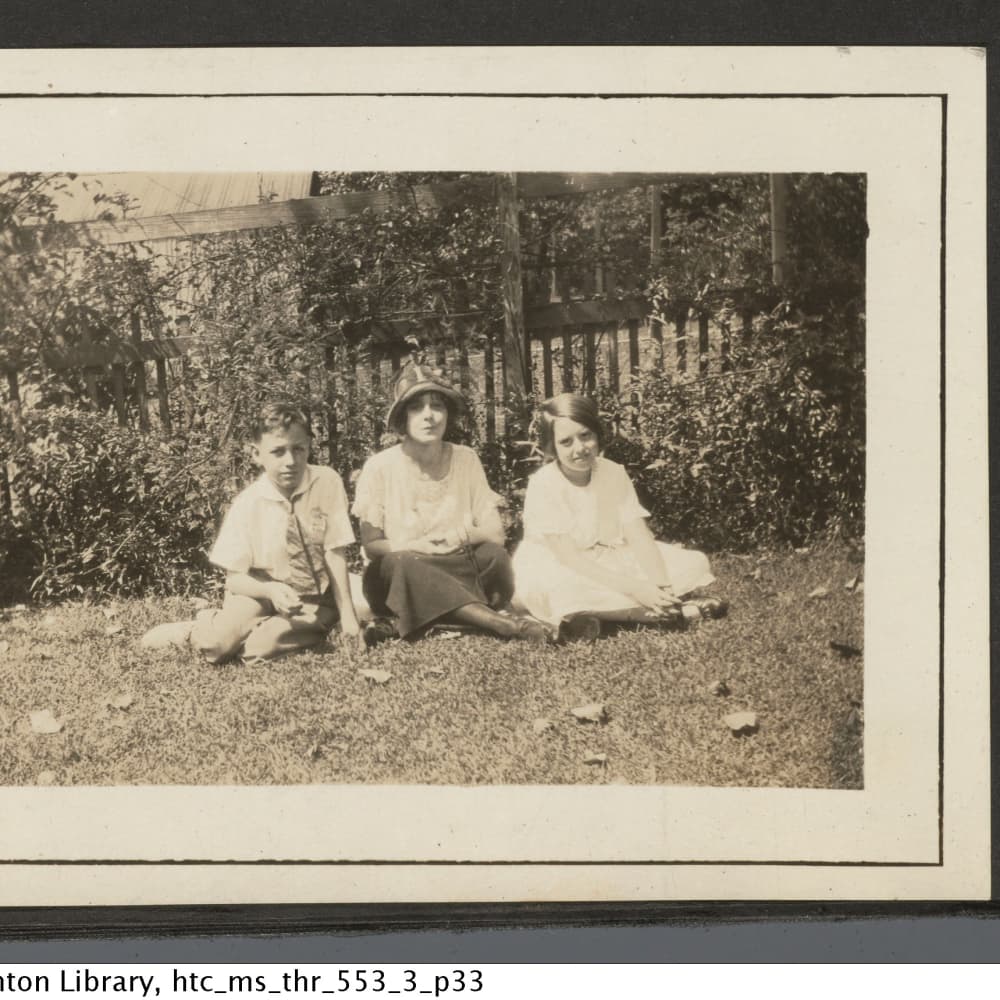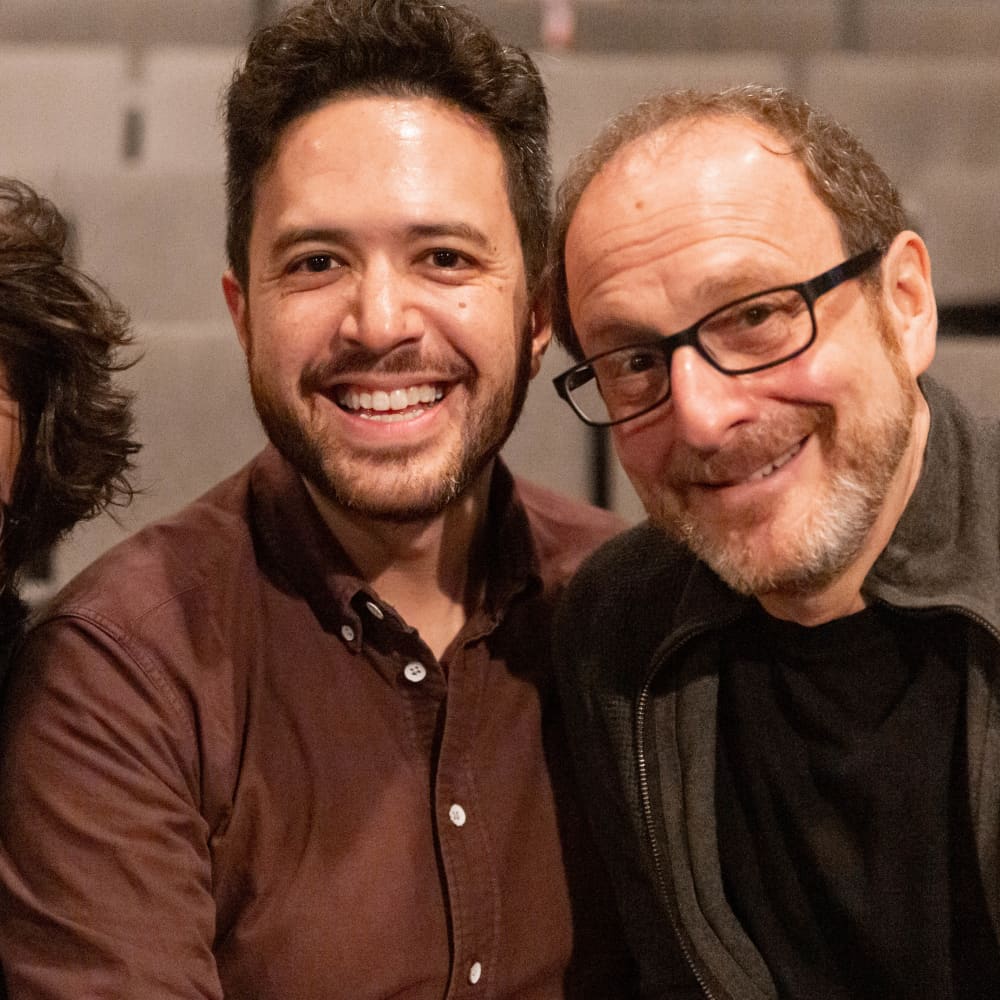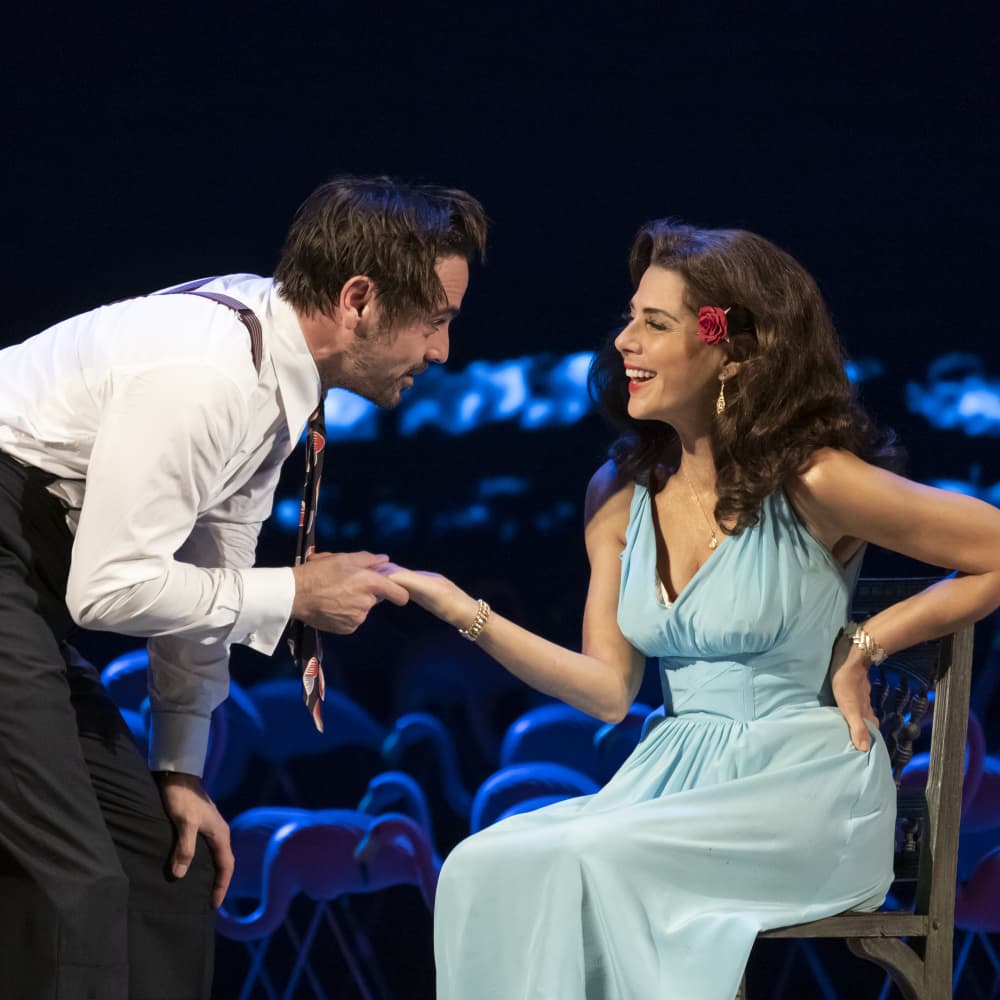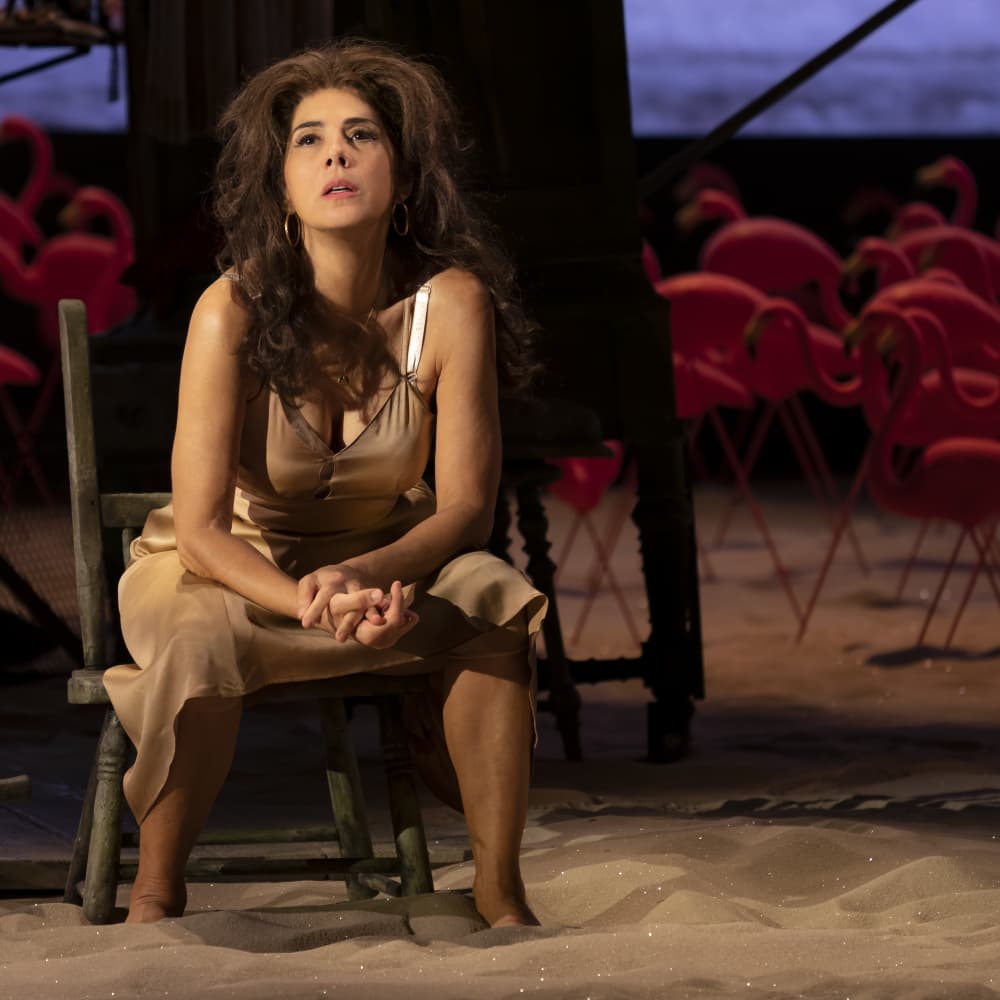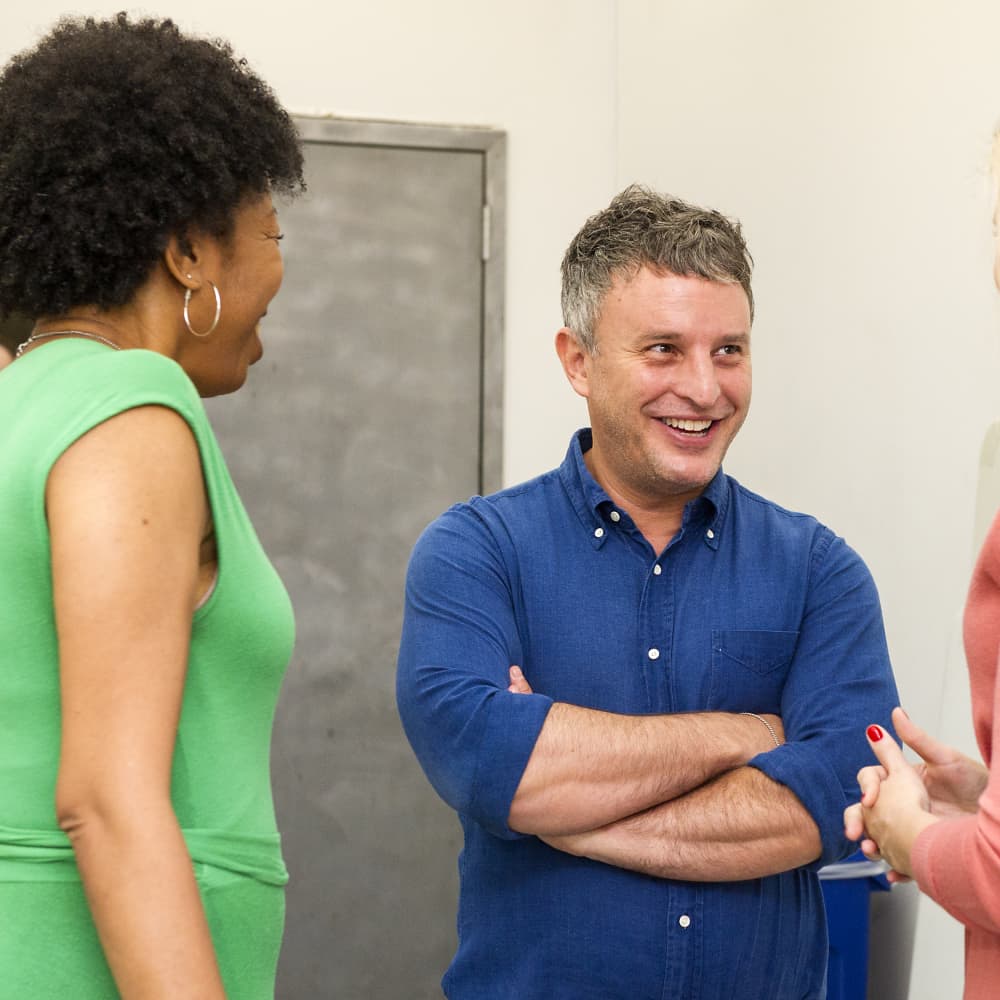Scotland, PA:
Interview with Actors Ryan McCartan and Taylor Iman Jones
Posted on: November 26, 2019
Education Dramaturg Ted Sod spoke with Ryan McCartan and Taylor Iman Jones, playing Mac and Pat respectively in Scotland, PA, about their work.
Ted Sod: Where were you born and educated? Did you have any teachers who had a profound influence on your decision to become performers?
Ryan McCartan: I was born and raised in a suburb west of the Twin Cities in Minnesota. Our high school theatre director Kent Knutson — who we fondly referred to as “Coach”— created an unbelievable program to which I owe an immense amount of thanks for propelling me into my adult life and this occupation.
Taylor Jones: I was born and raised in California's Bay Area. I started doing theatre when I was 11 after my friend at school invited me to join the local youth musical. I haven't stopped performing since then. Before moving to New York, I tried to do as many shows and work at as many theatre companies as I possibly could in the Bay Area. I credit the majority of my training to those amazing actors I was able to meet and work with along the way. But some of my favorite teachers include Vivian McLaughlin and Stacy Arriaga, who taught me how to work like an adult when I was a kid. And later in life, Nick Gabriel, Stephen Buescher, and Robert Barry Fleming taught me how to be a professional actor.

TS: Why did you choose to do the musical Scotland, PA and the roles of Mac and Pat? What do you find most challenging/exciting about your role?
RM: So far in my career. The amazing opportunities that have come my way in life have been outside of my control/design. In that way I like to think this role has “chosen” me! Before dropping out of college, I was enrolled in rigorous Shakespeare coursework at the University of Minnesota. I love Macbeth (I hope you’re not reading this out loud in a theatre), and the chance to play this iconic and tragic role in such a unique adaptation thrills me.
TJ: I have had the ultimate pleasure of being involved in Scotland, PA for a couple of years now. Getting to do it at this stage is a dream come true. As for Pat, Lady Macbeth is one of the fiercest roles in theatre history, and now add Adam Gwon’s score and Michael Mitnick’s book and I've basically won the lottery. Pat loves hard, and she's not afraid to be strong, so I'm a little nervous about but thoroughly looking forward to the opportunity to play her.
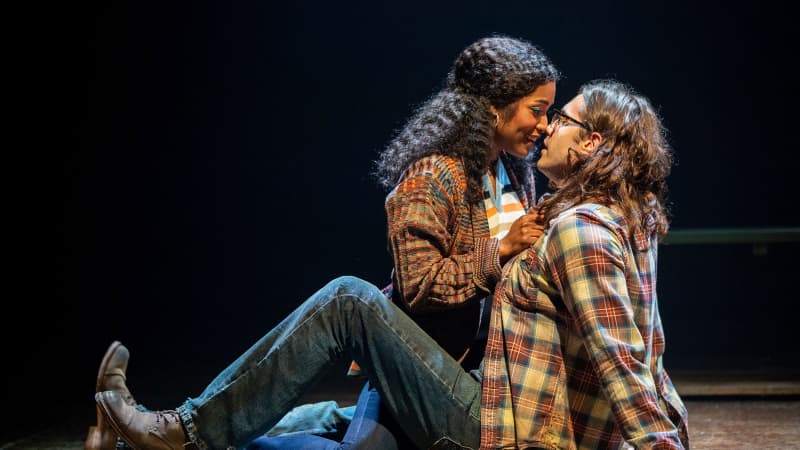
TS: Please give us some insight into your process as an actor: What kind of preparation or research did you have to do in order to play these roles?
RM: I read Shakespeare’s Macbeth numerous times. If it is available, I familiarize myself with any source material before starting a project. For me though, the real work and the deepest part of preparation happens in the rehearsal room, in the heat of the moment with my colleagues.
TJ: I found reading the play and watching the movie gave me a foundation to work from, but it also allowed me the freedom to make it my own. One of the biggest lessons I've learned while creating new theatre is to come in with an open mind and a willingness to play. I'm still working on bringing as many options as I can to the table. It can be frustrating at times, but always so rewarding when things finally come together.
TS: What do you think the musical Scotland, PA is about? I realize the rehearsal process hasn’t begun yet, but can you share some of your initial thoughts about who these characters are?
RM: Scotland, PA is about power, greed, and what happens when that cocktail of the two is poured haphazardly down the throat of someone unequipped to deal with its corrupting influence. Mac is a modernized Macbeth. A stoner, a wannabe. He’s a dreamer with no real grasp on making his dreams a reality. By a combination of magic and circumstance, he finds himself the king of his own empire; and, in full Shakespearean-tragedy form, climbs higher than he could ever imagine, only to fall over a precipice of his own making.
TJ:Scotland, PA is about people wanting more out of life and going to extremes to get it. Pat and I are both driven. I know what it means to want to leave your small town. I would argue she's a little braver than I am, and I've actually found some of my own strength through her.
TS: Taylor, will you talk about your current understanding of the relationship between Mac and Pat?
TJ: Pat and Mac's partnership is so important. They truly love each other, which drives them to make very unique decisions. I think it's really interesting to watch characters who seem to be on solid ground get pushed beyond their normal behavior.
TS: Ryan, how do you understand the connection between Mac and his “voices”?
RM: A modernized Macbeth must realize a modernized relationship between Macbeth and Lady Macbeth. In the Shakespearean text, Lady Macbeth is a villain, and Macbeth is the victim of her influence. For the purposes of our updated narrative, Mac and Pat become co-conspirators. In it together, they dig a hole too deep, precipitated in part by the “voices” Mac starts hearing in his head. These voices, representing Shakespeare’s common Witch/Seer trope, are responsible for prophesying a destiny of great fame and fortune, but of great peril as well. Mac only listens to the first half of these visions, and together with his wife, walks down a dangerous road.
TS: What do you look for from a director, choreographer, and music director when you are collaborating on a role in a new musical?
RM: I look for guidance, vision, and the guts to do something new, daring and unexpected. Equally important is a willingness to listen. When the leadership of a project grants the freedom for everyone in the room to express their opinions, the nexus of the best ideas creates the most thrilling artistic expression.
TJ: I learn a lot about myself when creating new work. You have to go outside of your comfort zone. I enjoy working with people who make that zone feel safe. Lonny is an incredible director who trusts his actors and helps them expand that trust within themselves. Every person on our creative team is open to ideas, but they also have very specific points of view, which tells me they care. At the end of the day, it's a team effort and everyone wants what's best for the whole.
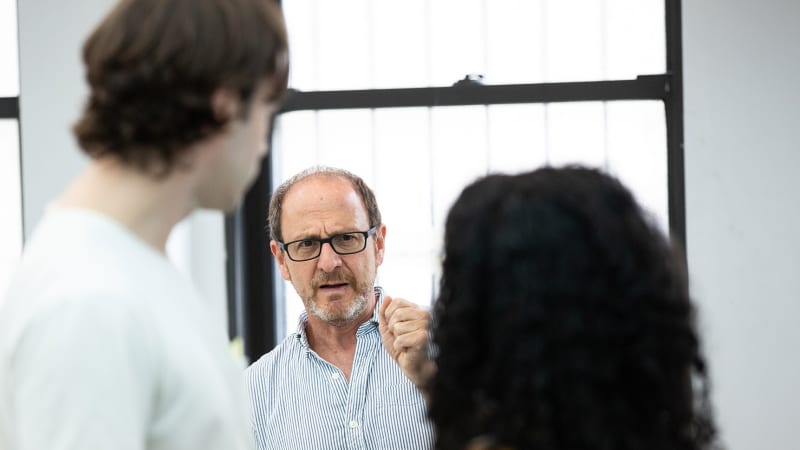
Director Lonny Price with Ryan McCartan and Taylor Iman Jones
© Jeremy DanielTS: What keeps you inspired as an artist?
RM: A perfectly crafted novel, a brilliantly engineered song, an insurmountably moving play. Any time I experience art in its natural habitat, I can’t help but go home and make my own. I am proud to have many artistically inclined friends through whom I experience a wide gamut of artistic exploration. I would be remiss not to mention my sister Alison, who inspires me daily and deeply and has taught me everything I know onstage and off.
TJ: My family has always supported me, so I'm on a mission to make them proud. I am so lucky to spend my life with the most creative and empathetic people. Through performance, I am able to express and learn about myself and the world around me. Selfishly, I just love it and have so much fun doing it. Theatre is a very intimate and vulnerable enterprise. You can't hide from the audience, the audience can't hide from you, or each other.
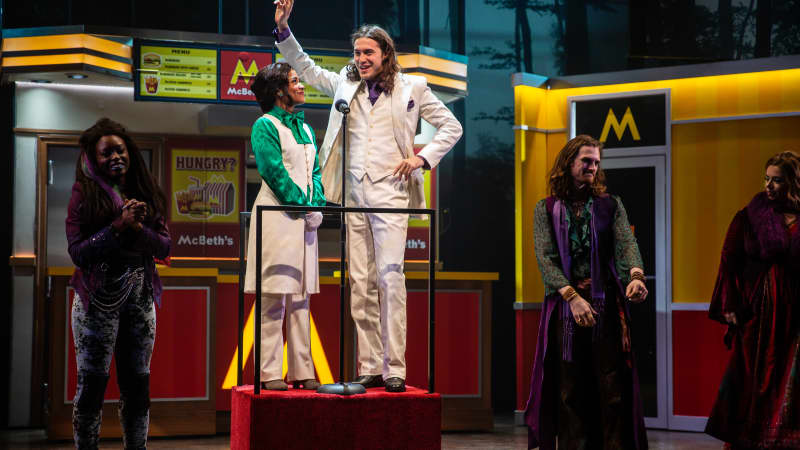
Wonu Ogunfowora, Taylor Iman Jones, Ryan McCartan, Kaleb Wells, and Alysha Umphress
© Nina GoodheartTS: School students will read this interview and will want to know what it takes to be a successful actor -- what advice can you give young people who say they want to sing, dance, and act in the musical theatre?
RM: I have spent a long time thinking about this question over the past almost two decades that I’ve been acting professionally. I’ve been so fortunate to work with many amazing and awe-inspiring talents, and they all have key factors about their artistry and personality in common. The biggest thing I notice in people is their burning passion for what they’re doing. It’s more important to have passion rather than a plan. There are many paths up the mountain, but only one mountain top. Don’t worry about the forks in the road, or which paths seem like they’ll get you there faster. Just fix your gaze on the summit of your desires, and climb!
TJ: Get ready for hard work! Musical theatre is hard. From the moment you wake up, everything you put into your body and what you do with your body affects how your performances go that day. If you're doing it professionally, then you need to be your own biggest cheerleader and your own biggest critic. Know your weaknesses, so that you continue to work on improving them, and know your strengths so that you can celebrate and use them to your advantage. Always remember that there is only one of you, you are more than enough and deserving of any role.




